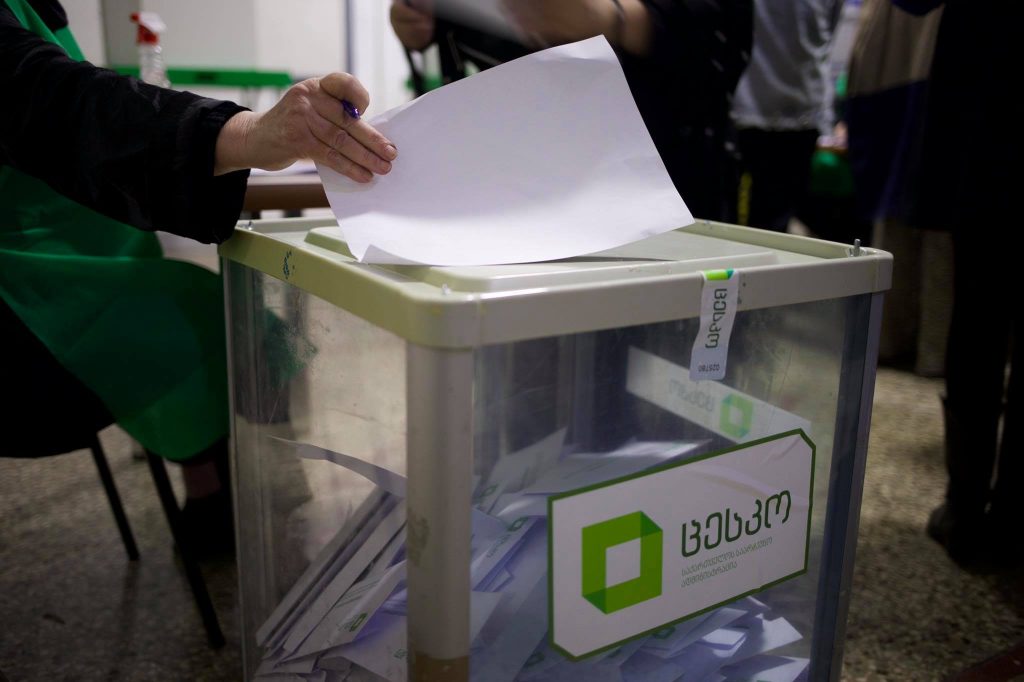The International Republican Institute (IRI), a U.S.-founded non-profit, released on March 11 its final report on findings of the Technical Election Assessment Mission (TEAM) during Georgia’s October 31, 2020, parliamentary elections, with recommendations aimed at improving “future electoral processes.”
Some key recommendations that could “contribute positively to improving electoral integrity in the short- and long-term” refer to:
- Revising the selection process of party-appointed members in election commissions for a more balanced representation of parliamentary parties;
- Swift and transparent recounts in precincts where the validity of results count is in question; revising “controversial” procedure for amending summary protocols;
- Developing stricter regulations for non-partisan citizen observers, as this non-partisan observation mechanism was abused by “many political parties”;
- Extending electoral complaints deadlines;
- Swift investigation and timely sanction of perpetrators of electoral intimidation and violence, including against journalists and election observers; Enhanced relevant public communication efforts;
- Taking steps to “end the culture of impunity for sexual misconduct including violations of the right to respect private and family life” regarding women candidates;
- Political parties increasing outreach to minority groups, condemning social media manipulations, engaging in constructive debates on priority concerns of Georgians.
Below are some of the key highlights from the report:
Pre-election period
The IRI report says pre-election processes were transparent, well-administered, and “for the most part” according to prescribed law. However, it highlights that the main driver of criticism toward the election administration was the process of forming district (DEC) and precinct election commissions (PEC), which had three ruling Georgian Dream party appointees but one representative only each from the United National Movement, European Georgia and Alliance of Patriots.
Regarding campaign finances, the report says there were allegations of “strong linkages” between the ruling party and persons at businesses awarded large state tenders. However, IRI says the “persistently under-resourced” State Audit Office did not have the capacity to fully investigate the claims.
E-day, summary protocol discrepancies
The report says the election bodies managed technical aspects on Election Day effectively and met their legal obligations. It notes that vote tabulation was complex and unique due to the high number of electoral subjects, resulting in summary protocols “with obvious mathematical mismatches,” which were “swiftly corrected” the following day.
However, the report argues some political actors abused the errors by disseminating defective protocols “to claim the results count was falsified and to discredit the Central Election Commission.” Still, it adds that the PEC’s right to amend data in summary protocols the day after the vote is “at best, based on precinct members’ memory, opinion and PEC explanatory
notes and, at worst, susceptible to manipulation.”
Irregularities, Complaints
IRI report states that Election Day irregularities that were prominent during past elections “surfaced again in 2020,” including the excessive presence of electoral subjects and media representatives through non-partisan election observation mechanisms, 100 percent increase in physical violence and threats reported by ISFED compared to 2016 general election, media filming voters at close range in polling stations and cases of intimidation directed against citizen observers.
According to the report, key election watchdogs’ appeals requesting recounts were mostly unsuccessful. “Of the recounts that took place, six were initiated by the DECs, 14 were the result of a complaint, and 19 were on the basis of a court decision,” it notes.
Moreover, IRI said complaints lodged to DECs and PECs regarding the pre-election period violations were often rejected on bureaucratic grounds.
“In the days leading up to Election Day, there were allegedly 72 reports of election-related violations under investigation at the Ministry of
Interior, yet few were ever prosecuted,” the report adds.
Also Read:
- ODIHR Issues Final Election Observation Report on Georgia
- IRI Releases Interim Report on Parliamentary Polls
This post is also available in: ქართული (Georgian) Русский (Russian)

